Arts

This series is one part of UC Irvine's Musicianship 15 ABC sequence for music majors. An understanding of music notation and basic musical terms is helpful but not required for these presentations. The math involved is basic.
Pitch systems use mathematics to organize audible phenomenon for creative expression. The cognitive processes we develop through exposure to music comprise a kind of applied mathematics; our emotional responses to musical nuance grow out of a largely unconscious mastery of the patterns and structures in music. This series of presentations covers the basic mathematics and cognitive phenomenon found in the tonal system used in Western music and much of the music of the world. Over the course of several presentations we will explore basic concepts of pitch and frequency, the organizing rules of tonal systems, and the mathematical construction of basic scales and chords. The reasoning and purpose of equal temperament, the standard tuning system for tonal music, will be explored in this context. Presentations will include graphics and computer applications designed specifically to illustrate these concepts.
Introduction to Pitch Systems in Tonal Music
Authors:
-
John Crooks

Introduction to Pitch Systems in Tonal Music by John Crooks, MFA is licensed under a Creative Commons Attribution 3.0 United States License.
Resources related to Introduction to Pitch Systems in Tonal Music
Lectures
Biological Sciences

Patterns of diversity, ecology, and evolutionary biology. Emphasis is on the Tree of Life and how its members are distributed and interact.
Partial Course.
BioSci 94: Organisms to Ecosystems
Authors:
-
Michael Clegg Ph.D.
- Ecology & Evolutionary Biology, Biological Sciences, University of California, Irvine
Resources related to BioSci 94: Organisms to Ecosystems
Lectures

Cell biology, biochemistry, genetics, and the biology of organ systems. Covers concepts of building blocks (nucleotides, amino acids, and cells) and of information flow (DNA to proteins, receptors to nuclei, the blood to distant organs, and DNA to offspring)
BioSci 93: DNA to Organisms
Authors:
-
Diane O'Dowd
- Developmental & Cell Biology, Biological Sciences, University of California, Irvine
Aimee Edinger
- Developmental & Cell Biology, Biological Sciences, University of California, Irvine
Resources related to BioSci 93: DNA to Organisms
Lectures

BioSci M121: Immunology with Hematology
Authors:
-
David Fruman Ph.D.
- Molecular Biology and Biochemistry, Biological Sciences, University of California, Irvine
Craig Walsh Ph.D.
- Molecular Biology and Biochemistry, Biological Sciences, University of California, Irvine
BioSci M121: Immunology with Hematology by David Fruman and Craig Walsh is licensed under a Creative Commons Attribution-ShareAlike 3.0 International License.
Resources related to BioSci M121: Immunology with Hematology
Week 1
Week 2
- BioSci M121. Lec 05. Immunology with Hematology: Principles of Adaptive Immunity (Lecture) (English)
Week 3
Week 4
Week 5
Week 6
Week 7
- BioSci M121. Lec 20. Immunology with Hematology: Failures of the Body's Defenses (Lecture) (English)
Week 8
- BioSci M121. Lec 21. Immunology with Hematology: Failures of the Body's Defenses (Lecture) (English)
Week 9
Week 10
Education

This course is designed to help students understand the aspects of linguistic principles and processes that underlie oral and written language proficiency, and how this knowledge is relevant K-12 instruction. Emphasis is on a thorough, research-based understanding of phonology, morphology, orthography, semantics, syntax, and pragmatics. Students learn ways to use this information to support literacy and oral language development for elementary and secondary school students. Issues of linguistic diversity and second language learning are addressed.
Education 151: Language and Literacy
Authors:
-
Penelope Collins
- Education, Education, University of California, Irvine

Education 151: Language and Literacy by Penelope Collins is licensed under a Creative Commons Attribution-ShareAlike 4.0 International License.
Resources related to Education 151: Language and Literacy
Lectures

Education 173: Cognition & Learning in Educational Settings
Authors:
-
Michael Martinez

Education 173: Cognition & Learning in Educational Settings by Professor Michael Martinez is licensed under a Creative Commons Attribution-Noncommercial-No Derivative Works 3.0 United States License.
Resources related to Education 173: Cognition & Learning in Educational Settings
Course Syllabus and Practice Quizzes
Weekly Content

This course was developed to satisfy the California Commission of Teaching credentialing requirements for teacher candidates. The class provides opportunities for candidates to learn how to teach the basic and essential fundamentals of physical education for K-6th grade students. The central knowledge is about children’s motor skill development along with the emotional and social aspects related to physical activity. Teachers will learn the key aspects of a physical education lesson, which include a warm-up activity, the lesson plan (skill development and game applications), and closure. As a total lesson, at least half the time is spent in moderate to vigorous activity.
The course also addresses classroom management techniques, safety and liability, kinesiology, and instructional techniques. It incorporates discussions of multicultural aspects and special needs populations, and concludes with ideas for integrating physical education with academic subjects such as mathematics, language, and natural and social sciences.
Education 320: Teaching PE & Health, Elementary Education
Authors:
-
Jeff Johnston
- Ethics, Education, University of California, Irvine

Education 320: Teaching PE & Health, Elementary Education by Jeff Johnston is licensed under a Creative Commons Attribution-ShareAlike 3.0 Unported License.
Resources related to Education 320: Teaching PE & Health, Elementary Education
Course Lectures
Engineering

This course covers: Fundamental concepts; fluid statics; fluid dynamics; Bernoulli's equation; control-volume analysis; basic flow equations of conservation of mass, momentum, and energy; differential analysis; potential flow; viscous incompressible flow.
Engineering MAE 130A: Intro to Fluid Mechanics
Authors:
-
Roger Rangel
- Mechanical & Aerospace Engineering, Engineering, University of California, Irvine

Engineering MAE 130A. Intro to Fluid Mechanics by Roger Rangel is licensed under a Creative Commons Attribution-ShareAlike 4.0 International License.
Resources related to Engineering MAE 130A: Intro to Fluid Mechanics
Lectures

This course introduces thermodynamic principles; open and closed systems representative of engineering problems; and first and second law of thermodynamics with applications to engineering systems and design. Topics include: thermodynamic concepts, thermodynamic properties, the first law of thermodynamics, first law analysis for a control volume, the second law of thermodynamics, entropy, and second law analysis for a control volume.
MAE 91: Introduction to Thermodynamics
Authors:
-
Roger Rangel Ph.D.
- Mechanical & Aerospace Engineering, Engineering, University of California, Irvine

Mechanical and Aerospace Engineering 91: Introduction to Thermodynamics by Roger Rangel is licensed under a Creative Commons Attribution-ShareAlike 3.0 Unported License.
Resources related to MAE 91: Introduction to Thermodynamics
Lectures

This course helps students develop computational programming skills and gain experience with computational tools to be used in the solution of engineering problems. Topics include: Introduction to Computing, Basic Matlab commands, Arrays: one-dimensional and multi-dimensional, Flow control, Selective execution, Repetitive execution and iterations, Input and Output, Modular Programming: Functions, Plotting, and Advanced data types.
Mechanical and Aerospace Engineering 10: Introduction to Engineering Computations
Authors:
-
Paul Nissenson
- Mechanical Engineering, Engineering, California State Polytechnic University, Pomona

MAE 10: Introduction to Engineering Computations by Paul Nissenson is licensed under a Creative Commons Attribution-ShareAlike 3.0 Unported License.
Resources related to Mechanical and Aerospace Engineering 10: Introduction to Engineering Computations
Syllabus and Homework
Lectures
Final Exam

Manufacturing processes can be organized by considering the type of energy required to shape the work-piece. In this course, sources of energy considered for machining are mechanical used for cutting and shaping, heat energy such as in laser cutting, photochemical such as in photolithography, and chemical energy such as in electro chemical machining and chemical vapor deposition (CVD). Students, guided by product specifications and a design will decide: 1) When to apply mechanical machining vs. lithography based machining, 2) What type of mechanical machining and what type of lithography based machining to apply, 3) When to employ bottom-up vs. top-down manufacturing, 4) When to choose serial, batch or continuous manufacturing and 5) What rapid prototyping method to select. A logical decision tree will be presented to sort the machining options. Examples from a variety of products ranging in size from nanometers to centimeters will be considered.
Mechanical and Aerospace Engineering 165: Advanced Manufacturing Choices
Authors:
-
Marc Madou
- Biomedical Engineering, Engineering, University of California, Irvine

Mechanical and Aerospace Engineering 165: Advanced Manufacturing Choices by Marc Madou is licensed under a Creative Commons Attribution-ShareAlike 3.0 Unported License.
Resources related to Mechanical and Aerospace Engineering 165: Advanced Manufacturing Choices
Course Lectures
Course Practicums

CEE 20: Introduction to Computational Engineering Problem Solving
Authors:
-
Jasper Vrugt Ph.D.
- Civil and Environmental Engineering, Engineering, University of California, Irvine

Engineering CEE 20. Introduction to Computer Engineering Problem Solving by Jasper Alexander Vrugt is licensed under a Creative Commons Attribution-ShareAlike 3.0 Unported License.
Resources related to CEE 20: Introduction to Computational Engineering Problem Solving
Lectures

Biomems 2011
Authors:
-
Marc Madou
- Biomedical Engineering, Engineering, University of California, Irvine
Resources related to Biomems 2011
Info!
There are no related resourcesHealth Sciences

This course presents the overarching framework, principles, and core responsibilities of public health research and practice from a multidisciplinary perspective. The course also provides the necessary foundation for further studies toward advanced cross-cutting approaches essential for public health practice.
Foundations of Public Health: Pub Hlth 200
Authors:
-
Oladele Ogunseitan
- Population Health and Disease Prevention, Social Ecology, University of California, Irvine

Foundations of Public Health: Pub Hlth 200 by Oladele Ogunseitan is licensed under a Creative Commons Attribution-Share Alike 3.0 United States License.
Resources related to Foundations of Public Health: Pub Hlth 200
Syllabus
Week 1
Week 2
Week 3
Week 4
Week 5
Week 6
Week 7
Week 8
Week 10

Provides training for students with an interest in clinical and translational research in the health care setting. Cultivates skills for study design, research literature review, ethics, responsible conduct of research, and cultural competence while emphasizing professionalism and personal responsibility.
PubHlth 194A: Clinical and Translational Research Preparatory I
Authors:
-
Shahram Lotfipour
- Emergency Medicine, Medicine, University of California, Irvine
Oladele Ogunseitan
- Population Health and Disease Prevention, Social Ecology, University of California, Irvine
Dan Cooper
- Immunology, Medicine, University of California, Irvine
PUBHLTH 194A: Clinical and Translational Research Preparatory I is licensed under a Creative Commons Attribution-ShareAlike 3.0 Unported License.
Resources related to PubHlth 194A: Clinical and Translational Research Preparatory I
Lecture

This course prrovides direct opportunities for Public Health majors to observe and participate in public health activities and/or research; and to cultivate skills for verbal and written communication of contemporary public health topics for an integrative culminating experience.
PubHlth 195W: Public Health Practicum and Culminating Experience
Authors:
-
Oladele Ogunseitan Ph.D.
- Population Health and Disease Prevention, Social Ecology, University of California, Irvine

PubHlth 195W by Oladele Ogunstein is licensed under a Creative Commons Attribution-ShareAlike 3.0 Unported License.
Resources related to PubHlth 195W: Public Health Practicum and Culminating Experience
Lectures

Student participatory course practicing initiation, planning, and coordination of various speakers on the subject of Disparities in Health Care. Topics in this course include: mental health, Health Care financing, religion and spirituality in health, immigration and medical care, women's health, geriatrics, and prison health.
PubHlth 91: Disparities in Health Care
Authors:
-
Oladele Ogunseitan Ph.D.
- Population Health and Disease Prevention, Social Ecology, University of California, Irvine
Various Authors

PubHlth 91: Disparities in Health Care by Oladele Ogunseitan is licensed under a Creative Commons Attribution-ShareAlike 3.0 Unported License.
Resources related to PubHlth 91: Disparities in Health Care
Lectures

Introduces the major concepts and principles of public health and the determinants of health status in communities. Emphasizes the ecological model that focuses on the linkages and relationships among multiple natural and social determinants affecting health. Course may be offered online.
PubHlth1: Principles of Public Health
Authors:
-
Zuzana Bic
- Public Health, Health Sciences, University of California, Irvine

PubHlth1: Principles of Public Health by Zuzana Bic is licensed under a Creative Commons Attribution-ShareAlike 3.0 Unported License.
Resources related to PubHlth1: Principles of Public Health
Lectures
Humanities

Classics 170A: Religion & Law in Ancient Greece
Authors:
-
Andromache Karanika
- Classics, Humanities, University of California, Irvine

Classics 170A: Religion & Law in Ancient Greece by Professor Andromache Karanika is licensed under a Creative Commons Attribution-Noncommercial-No Derivative Works 3.0 United States License.
Resources related to Classics 170A: Religion & Law in Ancient Greece
Course Files

African American Studies 40A: African American Studies
Authors:
-
Bridget Cooks
- Art History, Humanities, University of California, Irvine

African American Studies 40A: African American Studies by Bridget Cooks is licensed under a Creative Commons Attribution-Noncommercial-Share Alike 3.0 United States License.
Resources related to African American Studies 40A: African American Studies
Course Materials
Physical Sciences
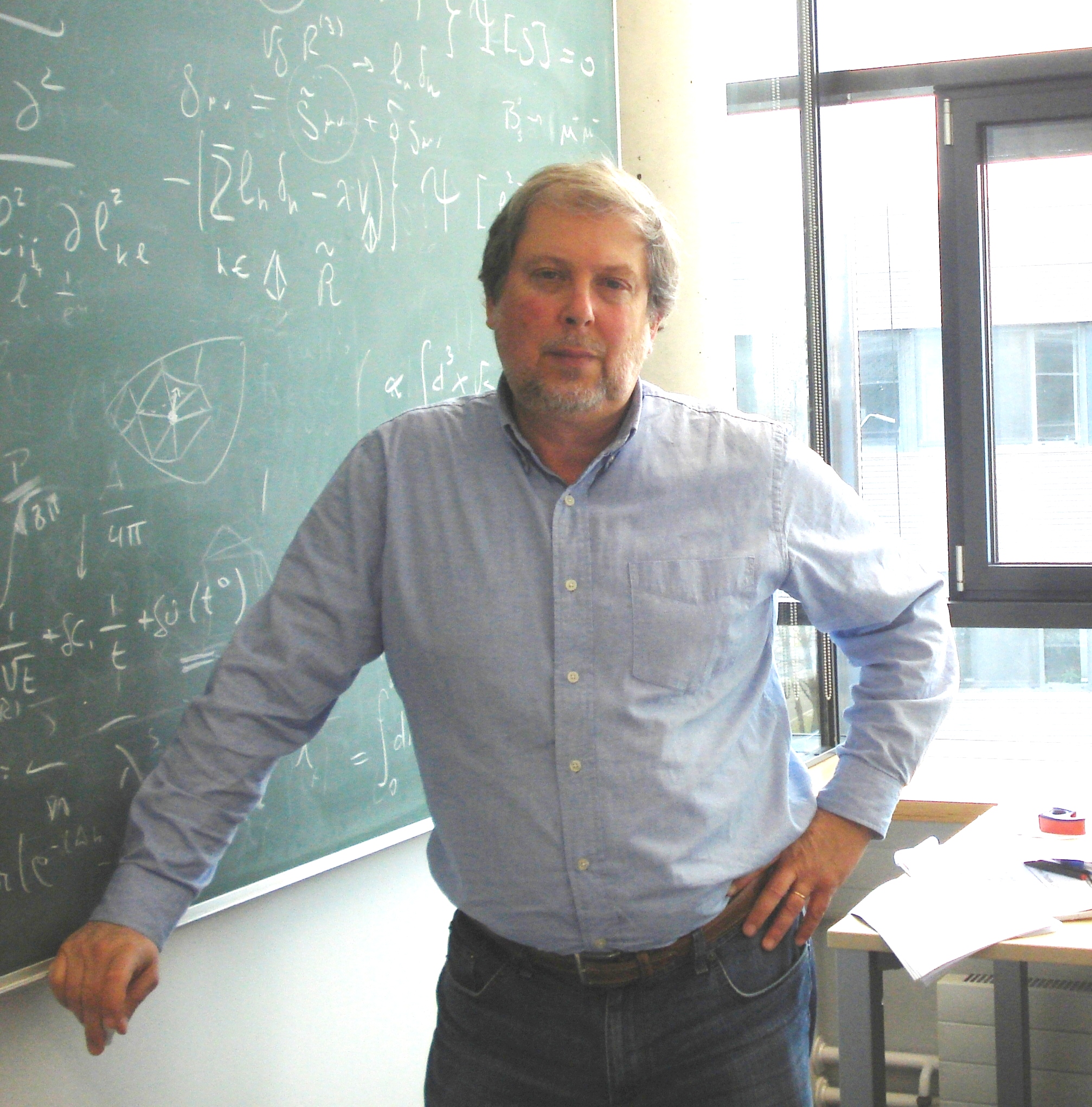
This course is listed as Physics 255: General Relativity in the UCI course catalogue.
An introduction to Einstein’s theory of gravitation. Tensor analysis, Einstein’s field equations, astronomical tests of Einstein’s theory, gravitational waves.
Link to Prof. Hamber's home page: http://aeneas.ps.uci.edu/
Einstein's General Relativity and Gravitation
Authors:
-
Herbert Hamber
- Physics & Astronomy, Physical Sciences, University of California, Irvine
"Einstein's General Relativity and Gravitation" by Herbert W. Hamber, Ph.D. is licensed under a Creative Commons Attribution-ShareAlike 4.0 Unported License.
Resources related to Einstein's General Relativity and Gravitation
Associated Files
Lectures
Student Presentations

Physics 20B: Cosmology
Authors:
-
James Bullock Ph.D.
- Physics & Astronomy, Physical Sciences, University of California, Irvine

Physics 20B: Cosmology by James Bullock is licensed under a Creative Commons Attribution-ShareAlike 3.0 Unported License.
Resources related to Physics 20B: Cosmology
Lectures

An overview of the scientific quest to discover life elsewhere in the universe. Topics include the origin of life on Earth, Mars, extra-solar planets, interstellar travel, and extra-terrestrial intelligence.
Physics 20E: Life in the Universe
Authors:
-
James Bullock
- Physics & Astronomy, Physical Sciences, University of California, Irvine

Physics 20E: Life in the Universe by Bullock, James is licensed under a Creative Commons Attribution-ShareAlike 3.0 United States License.
Resources related to Physics 20E: Life in the Universe
Lecture Videos

Have you ever wondered if Superman could really fly? What was Spiderman's spidey sense? How did Wonder Woman's invisible jet work? What does it really mean for something to be a scientific "fact"? Explore how science works and what constitutes "good" science through case studies drawn from a wide spectrum of people's experience, for example superheros, movies, and real world issues such as global warming. The case studies will provide the change to act as science critics as the students develop a better appreciation for science and the scientific method.
Physics 21: Science from Superheroes to Global Warming
Authors:
-
Michael Dennin
- Physics & Astronomy, Physical Sciences, University of California, Irvine
This work is licensed under a Creative Commons Attribution-Noncommercial-No Derivative Works 3.0 United States License.
Resources related to Physics 21: Science from Superheroes to Global Warming
Syllabus
Science Literacy
Numbers and Equations
Science Methodology
Scientific Community
Classical Mechanics
Superhero Week!
More Science
Science Fiction or Science Fact
Science and Society
The Final Frontier
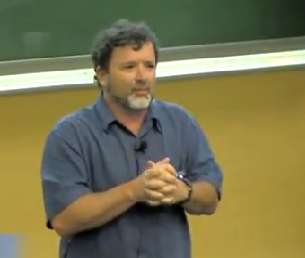
Introduction to basic physics. This course will introduce the conceptual and mathematical framework for kinematics and Newtonian dynamics, and also to teach problem solving techniques that are used in Physics. Other topics include: vectors; motion, force, and energy.
Physics 3A: Basic Physics
Authors:
-
Michael Dennin Ph.D.
- Physics & Astronomy, Physical Sciences, University of California, Irvine

Physics 3A. Basic Physics by Michael Dennin is licensed under a Creative Commons Attribution-ShareAlike 3.0 Unported License.
Resources related to Physics 3A: Basic Physics
Week 1
Week 2
Week 3
Week 4
Week 5
Week 6
Week 7
Week 8
Week 9
Week 10
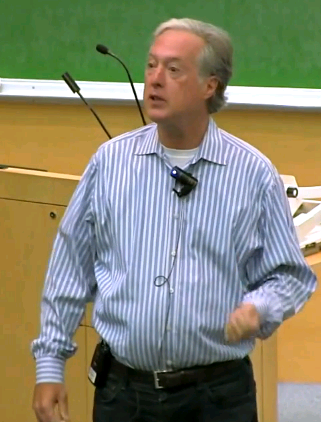
Second part of the Basic Physics 3 series. This course covers topics such as: fluid mechanics, thermodynamics,electrostatics (including dc circuits), magnetism (including eletromagnetic induction). The course assumes a working knowledge of calculus and trigonometry.
Physics 3B: Basic Physics II
Authors:
-
Roger McWilliams Ph.D.
- Physics & Astronomy, Physical Sciences, University of California, Irvine

Physics 3B: Basic Physics II by Roger McWilliams is licensed under a Creative Commons Attribution-ShareAlike 3.0 Unported License.
Resources related to Physics 3B: Basic Physics II
Lectures
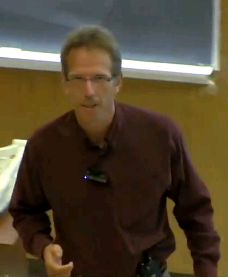
This is the third and final course of the Physics 3 series. The course focuses primarily on waves but the concepts of force and energy will continue to be important, as well. Specific topics include waves and sound, optics, quantum concepts, atomic and nuclear physics, and relativity.
Physics 3C: Basic Physics III
Authors:
-
Michael Smy Ph.D.
- Physics & Astronomy, Physical Sciences, University of California, Irvine

Physics 3C: Basic Physics III by Michael Smy is licensed under a Creative Commons Attribution-ShareAlike 3.0 Unported License.
Resources related to Physics 3C: Basic Physics III
Lectures

Mathematica and its applications to linear algebra, differential equations, and complex functions. Fourier series and Fourier transforms. Other topics in integral transforms.
Filmed Spring 2014.
Physics 50: Math Methods
Authors:
-
Michael Dennin
- Physics & Astronomy, Physical Sciences, University of California, Irvine

Physics 50: Math Methods by Michael Dennin is licensed under a Creative Commons Attribution-ShareAlike 4.0 Unported License.
Resources related to Physics 50: Math Methods
Lectures

This course will show you how to apply simple physics models to the motion of objects. UCI Physics 7C covers the following topics: force, energy, momentum, rotation, and gravity.
Physics 7C: Classical Physics
Authors:
-
Daniel Whiteson
- Physics & Astronomy, Physical Sciences, University of California, Irvine

Physics 7C: Classical Physics by Daniel Whiteson, Ph.D. is licensed under a Creative Commons Attribution-ShareAlike 4.0 International License.
Resources related to Physics 7C: Classical Physics
Lectures

This course is intended for both mathematics and biology undergrads with a basic mathematics background, and consists of an introduction to modeling biological problems using continuous ODE methods (rather than discrete methods as used in 113A). We describe the basic qualitative behavior of dynamical systems in the context of a simple population model and, as time allows, introduce other types of models such as chemical reactions inside the cell or excitable systems leading to oscillations and neuronal signals. Certain topics from linear algebra that are needed for this course are presented as well, so a linear algebra prerequisite is not necessary.
Math 113B: Intro to Mathematical Modeling in Biology
Authors:
-
German Andres Enciso Ruiz
- Mathematics, Physical Sciences, University of California, Irvine

Math 113B: Intro to Mathematical Modeling in Biology by Germán A. Enciso is licensed under a Creative Commons Attribution-ShareAlike 4.0 International License.
Resources related to Math 113B: Intro to Mathematical Modeling in Biology
Lectures

Introductory course covering basic principles of probability and statistical inference. Topics covered in this course: Axiomatic definition of probability, random variables, probability distributions, expectation.
Math 131A: Introduction to Probability and Statistics
Authors:
-
Michael C. Cranston Ph.D.
- Mathematics, Physical Sciences, University of California, Irvine
Math 131A: Introduction to Probability and Statistics by Michael C. Cranston is licensed under a Creative Commons Attribution-ShareAlike 3.0 Unported License.
Resources related to Math 131A: Introduction to Probability and Statistics
Lectures

Second introductory course covering basic principles of probability and statistical inference. Topics: Point estimation, interval estimating, and testing hypotheses, Bayesian approaches to inference.
Math 131B: Introduction to Probability and Statistics
Authors:
-
Michael C. Cranston Ph.D.
- Mathematics, Physical Sciences, University of California, Irvine
Math 131B: Introduction to Probability and Statistics by Michael C. Cranston is licensed under a Creative Commons Attribution-ShareAlike 3.0 Unported License.
Resources related to Math 131B: Introduction to Probability and Statistics
Lectures

After reviewing tools from probability, statistics, and elementary differential and partial differential equations, concepts such as hedging, arbitrage, Puts, Calls, the design of portfolios, the derivation and solution of the Blac-Scholes, and other equations are discussed.
The notes for this course, Math 176, Mathematics of Finance, have been published as a book. See below for complete information.
Math 176: Math of Finance
Authors:
-
Donald Saari Ph.D.
- Mathematics, Physical Sciences, University of California, Irvine

Math 176: Math of Finance by Donald Saari is licensed under a Creative Commons Attribution-ShareAlike 4.0 International License.
Resources related to Math 176: Math of Finance
Lectures
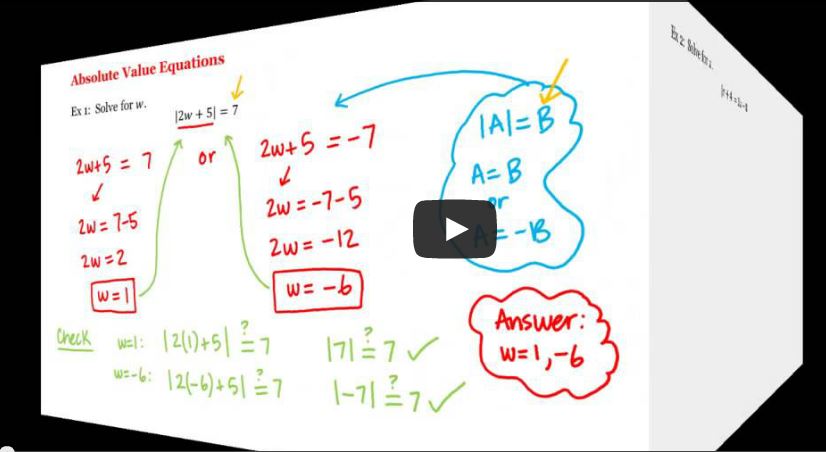
This Pre-Calculus course is designed to prepare students for a calculus course. This course is taught so that students will acquire a solid foundation in algebra and trigonometry. The course concentrates on the various functions that are important to the study of the calculus.
Math 1A/1B: Pre-Calculus
Authors:
-
Sarah Eichhorn
- Mathematics, Physical Sciences, University of California, Irvine
Rachel Lehman
- Mathematics, Physical Sciences, University of California, Irvine

Math 1A/1B: Pre-Calculus by Dr. Sarah Eichorn and Dr. Rachel Lehman is licensed under a Creative Commons Attribution-ShareAlike 4.0 International License.
Resources related to Math 1A/1B: Pre-Calculus
Introduction
Algebra and Geometry Review
Functions and Graphs
Polynomials and Rational Functions
Exponentials and Logarithms
Trigonometry
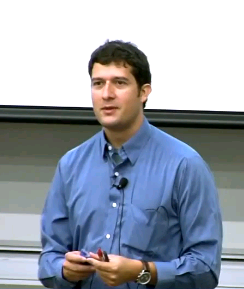
UCI Math 2A is the first quarter in Single-Variable Calculus and covers the following topics: Introduction to derivatives, calculation of derivatives of algebraic and trigonometric functions; applications including curve sketching, related rates, and optimization. Exponential and logarithm functions.
Math 2A: Calculus I
Authors:
-
German Andres Enciso Ruiz
- Mathematics, Physical Sciences, University of California, Irvine

Math 2A. Calculus by German Andres Enciso Ruiz is licensed under a Creative Commons Attribution-ShareAlike 3.0 Unported License.
Resources related to Math 2A: Calculus I
Lectures
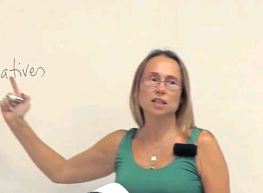
Math 2B is the second quarter of Single-Variable Calculus and covers the following topics: Definite integrals; the fundamental theorem of calculus. Applications of integration including finding areas and volumes. Techniques of integration. Infinite sequences and series. Parametric and polar equations.
Math 2B: Calculus
Authors:
-
Natalia Komarova
- Mathematics, Physical Sciences, University of California, Irvine

Math 2B Calculus by Natalia Komarova is licensed under a Creative Commons Attribution-ShareAlike 3.0 Unported License.
Resources related to Math 2B: Calculus
Week 1
Week 2
Week 3
Week 4
Week 5
Week 6
Week 7
Week 8
Week 9
Week 10

In this course, students will learn basic linear algebra necessary to understand the operations regarding derivatives of functions with more than one variable to investigate maximum and minimum values of those functions with economics applications in mind. Students will also see how to solve linear systems and then how to turn them into problems involving matrices, then learn some of the important properties of matrices. This course will focus on topics in linear algebra and multivariable differential calculus suitable for economic applications. Recorded Summer 2013.
Math 4: Math for Economists
Authors:
-
Jason Kronewetter Ph.D.
Math 4. Math for Economists by Jason Kronewetter is licensed under a Creative Commons Attribution-ShareAlike 3.0 Unported License.
Resources related to Math 4: Math for Economists
Course Syllabus
Week 1
Week 2
Week 3
Week 4
Week 5
Week 6

This course introduces Earth System Science, which, at its core, involves viewing Earth’s environment in a holistic fashion. Topics covered in the course include: the origin and evolution of the Earth, its atmosphere, and oceans, from the perspective of biogeochemical cycles, energy use, and human impacts on the Earth system.
ESS 1: Introduction to Earth System Science
Authors:
-
Julie Ferguson
- Earth System Science, Physical Sciences, University of California, Irvine
Earth System Science 1 by Julie Ferguson is licensed under a Creative Commons Attribution-ShareAlike 3.0 Unported License.
Resources related to ESS 1: Introduction to Earth System Science
Week 1
Week 2
Week 3
Week 4
Week 5
Week 6
Week 7
Week 8
Week 9
Week 10
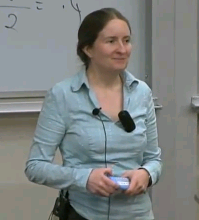
In recent decades we have observed a significant reduction of the cryosphere due to anthropogenic climate change. The observed and predicted changes in the extent and amount of snow and ice will have major impacts on climate, ecosystems and human populations both at a local and global scale. This course will introduce students to the science behind climate change as well as the physical and chemical processes that govern components of the cryosphere, including snow, permafrost, sea ice, glaciers and ice sheets. Particular emphasis will be placed on the important role that each component plays in the larger climate system and potential feedbacks. We will also examine some of the social, economic and political impacts that the melting cryosphere will have on countries around the Arctic and also worldwide, such as access to new petroleum reserves, infrastructure damage due to melting permafrost, sea level rise and decreases in freshwater availability.
ESS 21: On Thin Ice - Climate Change and the Cryosphere
Authors:
-
Julie Ferguson
- Earth System Science, Physical Sciences, University of California, Irvine

ESS 21: On Thin Ice - Climate Change and the Cryosphere by Julie Ferguson is licensed under a Creative Commons Attribution-ShareAlike 4.0 International License.
Resources related to ESS 21: On Thin Ice - Climate Change and the Cryosphere
Week 1
Week 2
Week 3
Week 4
Week 5
Week 6
Week 7
Week 8
Week 9
Week 10

- Photochemical smog
- Atmospheric particle pollution
- Indoor pollution
- Acid rain
- And human triggered climate change.
ESS 23: Air Pollution and Global Environments
Authors:
-
Saewung Kim Ph.D.
- Earth System Science, Physical Sciences, University of California, Irvine

ESS 23: Air Pollution by Saewung Kim is licensed under a Creative Commons Attribution-ShareAlike 4.0 International License.
Resources related to ESS 23: Air Pollution and Global Environments
Week 1
Week 2
Week 3
Week 4
Week 5
Week 6
Week 7
Week 8
Week 9
Week 10

Each quarter is devoted to current topics in the field of Earth System Science. Topics addressed vary each quarter. For this course, topics discussed include: climate change, biodiversity, demographics, transportation and urban systems, cost-benefit analysis, negative impacts on the environment, environmental policy, and sustainability.
ESS 280A: Special Topics in Earth System Science
Authors:
-
Various Authors

ESS 280A: Special Topics in EArth System Science is licensed under a Creative Commons Attribution-ShareAlike 3.0 Unported License.
Resources related to ESS 280A: Special Topics in Earth System Science
Lectures

The composition and circulation of the atmosphere with a focus on explaining the fundamentals of weather and climate. Topics include solar and terrestrial radiation, clouds, and weather patterns.
Filmed Spring 2014.
ESS 5: The Atmosphere
Authors:
-
Julie Ferguson Ph.D.
- Earth System Science, Physical Sciences, University of California, Irvine

ESS 5: The Atmosphere by Julie Ferguson is licensed under a Creative Commons Attribution-ShareAlike 4.0 International License.
Resources related to ESS 5: The Atmosphere
Week 1
Week 2
Week 3
Week 4
Week 5
Week 6
Week 7
Week 8
Week 9
Week 10
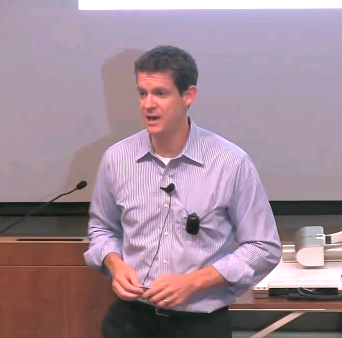
This course is an introduction to modern inorganic chemistry. Topics include principles of structure, bonding, and chemical reactivity with application to compounds of the main group and transition elements, including organometallic chemistry.
Chem 107: Inorganic Chemistry
Authors:
-
Matthew Law
- Chemistry, Physical Sciences, University of California, Irvine
Alan Heyduk
- Chemistry, Physical Sciences, University of California, Irvine

Chem 107: Inorganic Chemistry by Matthew D. Law, Ph.D. is licensed under a Creative Commons Attribution-ShareAlike 3.0 Unported License.
Resources related to Chem 107: Inorganic Chemistry
Associated Files
Week 1
Week 2
Week 3
Week 4
Week 5
Week 6
Week 7
Week 8
Week 9
Week 10

This is a 28-lecture junior/senior-level undergraduate-level course titled "Advanced Organic Chemistry" taught at UC Irvine by Professor James S. Nowick. The course builds upon the concepts and skills learned in a typical yearlong sophomore-level organic chemistry class. Topics include: The Chemical Literature and Databases; Stereochemistry and Structural Organic Chemistry; Synthetic Organic Chemistry; Mechanistic and Physical Organic Chemistry; NMR Spectroscopy. The course follows closely to the textbook Intermediate Organic Chemistry, 3rd edition, by Ann M. Fabirkiewicz and John C. Stowell. The course website is: https://eee.uci.edu/16s/40914/
Any questions or concerns regarding this class, please e-mail: jsnowick@uci.edu.
Chem 125: Advanced Organic Chemistry
Authors:
-
James Nowick
- Chemistry, Physical Sciences, University of California, Irvine

This work (Chem 125: Advanced Organic Chemistry by Nowick, James) is licensed under a Creative Commons Attribution 3.0 United States License.
Resources related to Chem 125: Advanced Organic Chemistry
Week 1
Week 2
Week 3
Week 4
Week 5
Week 6
Week 7
Week 8
Week 9
Week 10
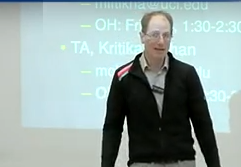
Chem 128: Introduction to Chemical Biology
Authors:
-
Gregory Alan Weiss
- Chemistry, Physical Sciences, University of California, Irvine

Chem 128: Introduction to Chemical Biology by Gregory Weiss, Ph.D. is licensed under a Creative Commons Attribution-ShareAlike 3.0 Unported License.
Resources related to Chem 128: Introduction to Chemical Biology
Associated Files
Week 1
Week 2
Week 3
Week 4
Week 5
Week 6
Week 7
Week 8
Week 9
- Chem 128. Lec. 16. Intro to Chemical Biology. Glycobiology & Polyketides, Part 2 (Lecture) (English)
Week 10
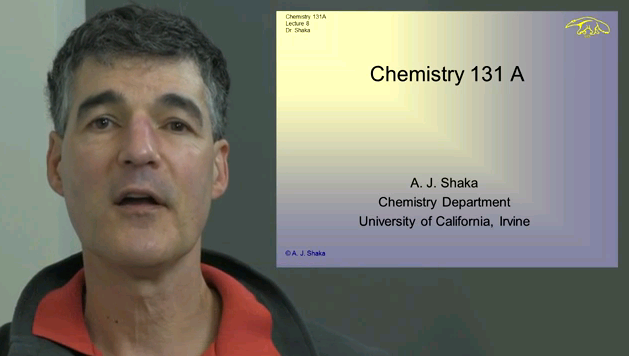
This course provides an introduction to quantum mechanics and principles of quantum chemistry with applications to nuclear motions and the electronic structure of the hydrogen atom. It also examines the Schrödinger equation and study how it describes the behavior of very light particles, the quantum description of rotating and vibrating molecules is compared to the classical description, and the quantum description of the electronic structure of atoms is studied.
Chem 131A. Quantum Principles
Authors:
-
A.J. Shaka Ph.D.
- Chemistry, Physical Sciences, University of California, Irvine

Chem 131A. Quantum Principles. by Dr. A.J. Shaka is licensed under a Creative Commons Attribution-ShareAlike 4.0 International License.
Resources related to Chem 131A. Quantum Principles
Associated Files
Week 1
Week 2
Week 3
Week 4
Week 5
- Chem 131A. Lec 12. Quantum Principles: Spin, The Vector Model and Hydrogen Atoms (Lecture) (English)
Week 6
Week 7
Week 8
Week 9
Week 10
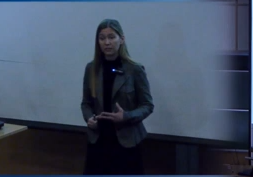
Chem 131B: Molecular Structure and Elementary Statistical Mechanics
Authors:
-
Rachel Martin

Chem 131B: Molecular Structure and Elementary Statistical Mechanics by Rachel Martin, Ph.D. is licensed under a Creative Commons Attribution-ShareAlike 3.0 Unported License.
Resources related to Chem 131B: Molecular Structure and Elementary Statistical Mechanics
Associated Files
Week 1
Week 2
Week 3
Week 4
Week 5
Week 6
Week 7
Week 8
Week 9
Week 10
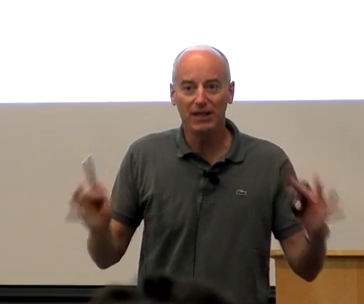
In Chemistry 131C, students will study how to calculate macroscopic chemical properties of systems. This course will build on the microscopic understanding (Chemical Physics) to reinforce and expand your understanding of the basic thermo-chemistry concepts from General Chemistry (Physical Chemistry.) We then go on to study how chemical reaction rates are measured and calculated from molecular properties. Topics covered include: Energy, entropy, and the thermodynamic potentials; Chemical equilibrium; and Chemical kinetics.
Chem 131C: Thermodynamics and Chemical Dynamics
Authors:
-
Reginald Penner Ph.D.
- Chemistry, Physical Sciences, University of California, Irvine

Chem 131C: Thermodynamics and Chemical Dynamics by Reginald Penner, Ph.D. is licensed under a Creative Commons Attribution-ShareAlike 3.0 Unported License.
Resources related to Chem 131C: Thermodynamics and Chemical Dynamics
Associated Files
Week 1
Week 2
Week 3
Week 4
Week 5
Week 6
- Chem 131C. Lec. 16. Thermodynamics and Chemical Dynamics. The Chemical Potential (Lecture) (English)
Week 7
Week 8
Week 9
Week 10
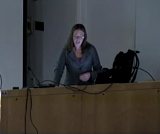
Chem 1A: General Chemistry
Authors:
-
Amanda Brindley
- Chemistry, Physical Sciences, University of California, Irvine

Chem 1A by Amanda Brindley, Ph.D. is licensed under a Creative Commons Attribution-ShareAlike 3.0 Unported License.
Resources related to Chem 1A: General Chemistry
Files
Week 1
Week 2
Week 3
Week 4
Week 5
Week 6
Week 7
Week 8
Week 9
Week 10
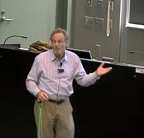
Chem 1B: General Chemistry
Authors:
-
Donald R. Blake
- Chemistry, Physical Sciences, University of California, Irvine

This work (Chem 1B: General Chemistry by Blake, Donald R.) is licensed under a Creative Commons Attribution-ShareAlike 4.0 International License.
Resources related to Chem 1B: General Chemistry
Associated Files
Week 1
Week 2
Week 3
Week 4
Week 5
Week 6
Week 7
Week 8
Week 9
Week 10
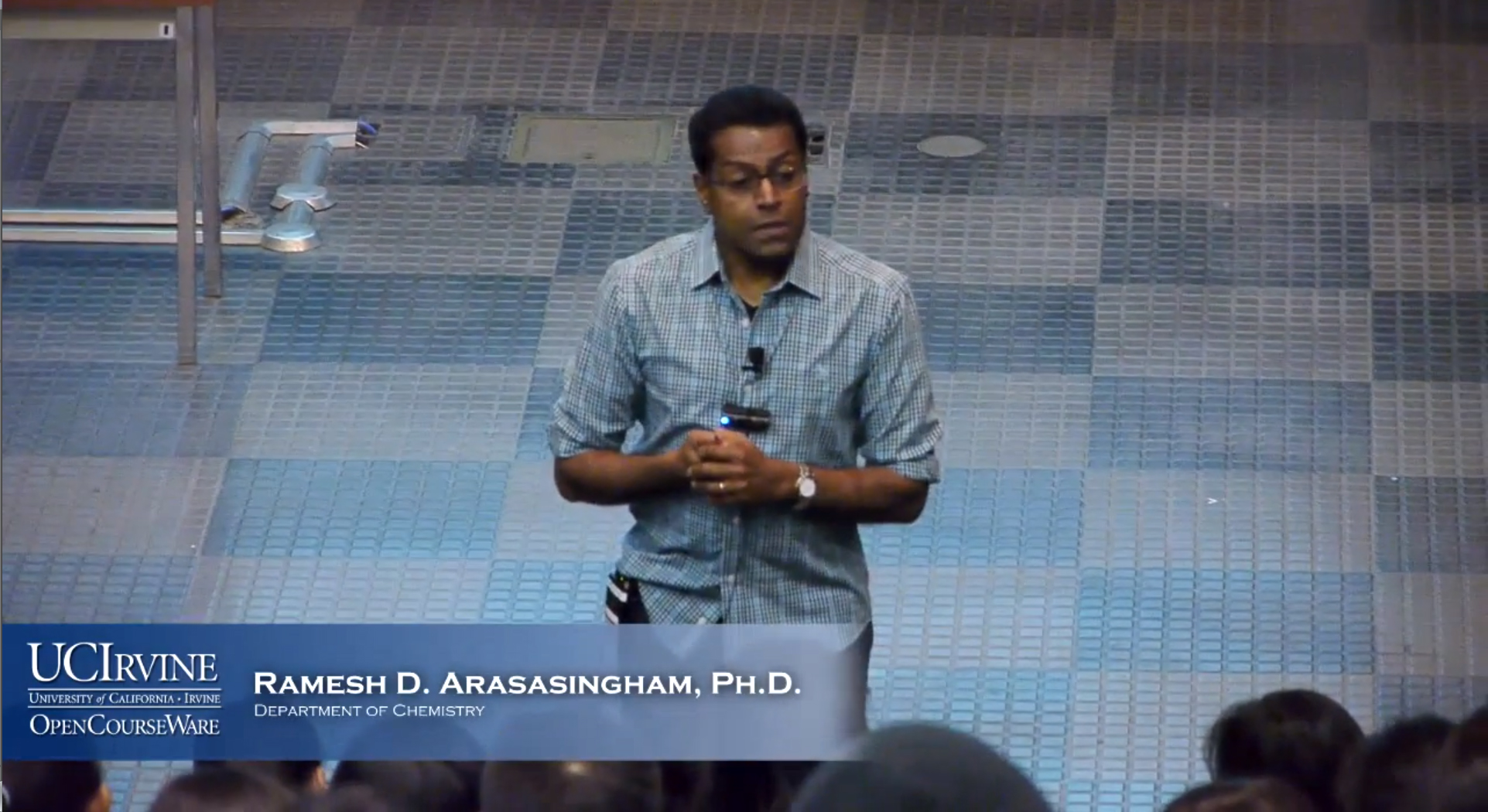
Chem 1C: General Chemistry
Authors:
-
Ramesh Arasasingham Ph.D.
- Chemistry, Physical Sciences, University of California, Irvine

Chem 1C: General Chemistry by Ramesh Arasasingham, Ph.D. is licensed under a Creative Commons Attribution-ShareAlike 3.0 United States License.
Resources related to Chem 1C: General Chemistry
Associated Files
Week 1
Week 2
Week 3
Week 4
Week 5
Week 6
Week 7
Week 8
Week 9
Week 10
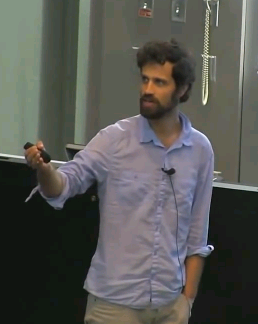
Chem 1P: Preparation for Chemistry
Authors:
-
Eric Potma
- Chemistry, Physical Sciences, University of California, Irvine
Resources related to Chem 1P: Preparation for Chemistry
Associated Files
Week 1
Week 2
Week 3
Week 5
Week 6
Week 7
Week 8
Week 9
Week 10
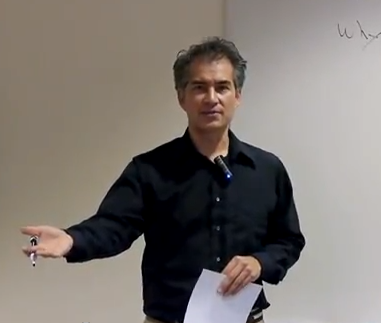
Chem 201: Organic Reactions Mechanisms I
Authors:
-
David Van Vranken
- Chemistry, Physical Sciences, University of California, Irvine

Chem 201: Organic Reactions Mechanisms I by David Van Vranken, Ph.D. is licensed under a Creative Commons Attribution-ShareAlike 3.0 Unported License.
Resources related to Chem 201: Organic Reactions Mechanisms I
Week 1
Week 2
Week 3
Week 4
Week 5
Week 6
Week 7
Week 8
Week 9
Week 10
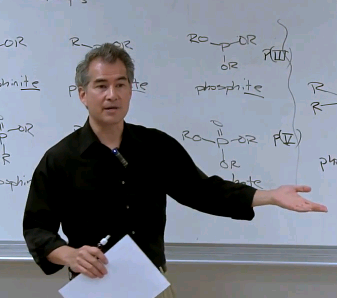
These videos are part of a 23-lecture graduate-level course titled "Organic Reaction Mechanisms II" taught at UC Irvine by Professor David Van Vranken. Topics include more in-depth treatment of mechanistic concepts, kinetics, conformational analysis, computational methods, stereoelectronics, and both solution and enzymatic catalysis.
Chem 202: Organic Reaction Mechanisms II
Authors:
-
David Van Vranken Ph.D.
- Chemistry, Physical Sciences, University of California, Irvine

Chemistry 202: Organic Reaction Mechanisms II (Winter 2014) by David Van Vranken is licensed under a Creative Commons Attribution-ShareAlike 3.0 Unported License.
Resources related to Chem 202: Organic Reaction Mechanisms II
Week 1
Week 2
Week 3
Week 5
Week 6
Week 7
Week 8
Week 9
Week 10
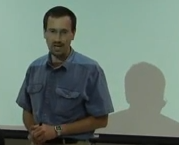
Chem 203: Organic Spectroscopy
Authors:
-
James Nowick Ph.D.
- Chemistry, Physical Sciences, University of California, Irvine

Chem 203: Organic Spectroscopy by James Nowick is licensed under a Creative Commons Attribution-ShareAlike 3.0 United States License.
Resources related to Chem 203: Organic Spectroscopy
Week 1
Week 2
Week 3
Week 4
Week 5
Week 6
- Chem 203. Lecture 17. Organic Spectroscopy: Introduction to 2D NMR Spectroscopy. (Lecture) (English)
- Chem 203. Lecture 18. Organic Spectroscopy: Dynamic Effects in NMR Spectroscopy. (Lecture) (English)
Week 7
Week 8
Week 9
Week 10
Discussion Sections

Graduate course in organic spectroscopy. Modern methods used in structure determination of organic molecules. Topics include mass spectrometry; ultraviolet, chiroptical, infrared, and nuclear magnetic resonance spectroscopy.
Chem 203: Organic Spectroscopy (2020)
Authors:
-
James Nowick
- Chemistry, Physical Sciences, University of California, Irvine

This work (Chem 203: Organic Spectroscopy (2020) by Nowick, James) is licensed under a Creative Commons Attribution-ShareAlike 3.0 United States License.
Resources related to Chem 203: Organic Spectroscopy (2020)
Lectures
- Chem 203. Lecture 19: Introduction to Two Dimensional 2D NMR Spectroscopy (2020) (Lecture) (English)

"Fundamental concepts relating to carbon compounds with emphasis on structural theory and the nature of chemical bonding, stereochemistry, reaction mechanisms, and spectroscopic, physical, and chemical properties of the principal classes of carbon compounds."
Chem 51A: Organic Chemistry (King)
Authors:
-
Susan King Ph.D.
- Chemistry, Physical Sciences, University of California, Irvine

Chem 51A: Organic Chemistry (King) by King, Susan is licensed under a Creative Commons Attribution-ShareAlike 3.0 United States License.
Resources related to Chem 51A: Organic Chemistry (King)
Associated Files
Week 1
Week 2
Week 3
Week 4
Week 5
Week 6
Week 7
Week 8
Week 9
Week 10

This version of Chem 51A was taught by Professor James Nowick in Fall 2009.
Course Description: Fundamental concepts relating to carbon compounds with emphasis on structural theory and the nature of chemical bonding, stereochemistry, reaction mechanisms, and spectroscopic, physical, and chemical properties of the principal classes of carbon compounds.
Chem 51A: Organic Chemistry (Nowick)
Authors:
-
James Nowick
- Chemistry, Physical Sciences, University of California, Irvine

This work (Chem 51A: Organic Chemistry (Nowick) by Nowick, James) is licensed under a Creative Commons Attribution-NonCommercial-NoDerivs 3.0 United States License.
Resources related to Chem 51A: Organic Chemistry (Nowick)
Lectures

Chem 51B: Organic Chemistry (King)
Authors:
-
Susan King
- Chemistry, Physical Sciences, University of California, Irvine

Chem 51B: Organic Chemistry (King) by King, Susan is licensed under a Creative Commons Attribution-ShareAlike 3.0 United States License.
Resources related to Chem 51B: Organic Chemistry (King)
Associated Files
Week 1
Week 2
Week 3
Week 4
Week 5
Week 6
Week 7
Week 8
Week 9
Week 10

This version of Chem 51B was taught by Dave Van Vranken in Winter Quarter 2013.
Description: This is the second quarter of the organic chemistry series. Topics covered include: Fundamental concepts relating to carbon compounds with emphasis on structural theory and the nature of chemical bonding, stereochemistry, reaction mechanisms, and spectroscopic, physical, and chemical properties of the principal classes of carbon compounds.
Chem 51B: Organic Chemistry (Van Vranken)
Authors:
-
David Van Vranken
- Chemistry, Physical Sciences, University of California, Irvine

This work (Chem 51B: Organic Chemistry (Van Vranken) by Van Vranken, David) is licensed under a Creative Commons Attribution-NonCommercial-ShareAlike 3.0 United States License.
Resources related to Chem 51B: Organic Chemistry (Van Vranken)
Lectures

Chem 51C: Organic Chemistry (King)
Authors:
-
Susan King
- Chemistry, Physical Sciences, University of California, Irvine

Chem 51C: Organic Chemistry (King) by King, Susan is licensed under a Creative Commons Attribution-ShareAlike 3.0 United States License.
Resources related to Chem 51C: Organic Chemistry (King)
Associated Files
Readings and Assigments
Week 1
- Chem 51C. Organic Chemistry. Lec. 03: Hydride Reagents and Addition to Carbonyls (Lecture) (English)
Week 2
Week 3
Week 4
Week 5
Week 6
Week 7
Week 8
Week 9
Week 10

This version of Chem 51C was taught by Professor James Nowick in Spring Quarter, 2012.
Description: This is the third quarter course in the organic chemistry series. Topics covered include: Fundamental concepts relating to carbon compounds with emphasis on structural theory and the nature of chemical bonding, stereochemistry, reaction mechanisms, and spectroscopic, physical, and chemical properties of the principal classes of carbon compounds.
Chem 51C: Organic Chemistry (Nowick)
Authors:
-
James Nowick
- Chemistry, Physical Sciences, University of California, Irvine

This work (Chem 51C: Organic Chemistry by Nowick, James) is licensed under a Creative Commons Attribution-NonCommercial-ShareAlike 3.0 United States License.
Resources related to Chem 51C: Organic Chemistry (Nowick)
Lectures
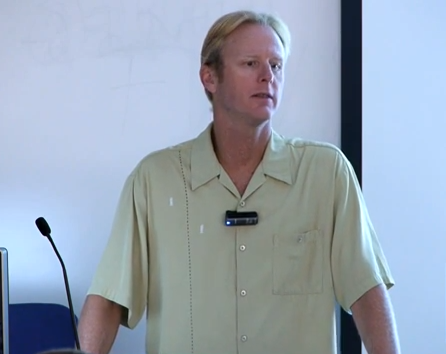
Chem 5: Scientific Computing Skills
Authors:
-
Douglas Tobias Ph.D.
- Chemistry, Physical Sciences, University of California, Irvine

Chem 5 by Doug Tobias, Ph.D. is licensed under a Creative Commons Attribution-ShareAlike 3.0 Unported License.
Resources related to Chem 5: Scientific Computing Skills
Associated Files
Week 1
Week 2
Week 3
Week 4
Week 5
Week 6
Week 8
Week 9
Week 10
Social Ecology

This entry-level psychology course is designed to provide students with an in-depth survey of general psychology. Topics include biological bases of behavior, sensation, perception, cognition, development, personality, psychopathology, and social psychology
Psych 9A/Psy Beh 11A: Psychology Fundamentals
Authors:
-
Thomas Michael D'Zmura
- Cognitive Studies, Social Sciences, University of California, Irvine

Psych 9A: Psychology Fundamentals by Michael D'Zmura, Ph.D. is licensed under a Creative Commons Attribution-ShareAlike 3.0 Unported License.
Resources related to Psych 9A/Psy Beh 11A: Psychology Fundamentals
Week 1
Week 2
Week 3
Week 4
Week 6
Week 7
Week 8
Week 9
Week 10
Lecture Slides

This is one of the three courses that are a part of a three-quarter series, cross-listed as "Social Ecology Psy Beh P11 A, B, C" or "Social Sciences Psych 9 A, B, C." All three courses are offered every quarter and can be taken in any order. The series is designed to give students a strong foundation in the major research areas of psychology, including such areas as human cognitive and social development, memory, language, emotional and social behavior, psychopathology, and neuroscience. This course sequence is required for students majoring in Psychology and Social Behavior in the School of Social Ecology and for students majoring in Psychology in the School of Social Sciences. These courses can also be taken by non-majors. In this course specifically, referred to as "Psy Beh P11B" or "Psych 9B," topics to be covered include memory, thinking, language, learning, and cognitive development.
Psych 9B/Psy Beh 11B: Psychology Fundamentals
Authors:
-
Mark Steyvers

This work (Psych 9B/Psy Beh 11B: Psychology Fundamentals by Steyvers, Mark) is licensed under a Creative Commons Attribution-ShareAlike 3.0 United States License.
Resources related to Psych 9B/Psy Beh 11B: Psychology Fundamentals
Week 1
Week 2
Week 3
Week 4
Week 5
Week 6
Week 7
Week 8
Week 9
Week 10

Designed to provide freshman with an in-depth survey of general psychology. Topics include biological bases of behavior, sensation, perception, cognition, development, personality, psychopathology, and social psychology.
Psych 9C/Psy Beh 11C: Psych Fundamentals
Authors:
-
Peter Ditto
- Psychology & Social Behavior, Social Ecology, University of California, Irvine

Psych 9C/Psy Beh 11C: Psych Fundamentals by Authors, Various is licensed under a Creative Commons Attribution-ShareAlike 3.0 United States License.
Resources related to Psych 9C/Psy Beh 11C: Psych Fundamentals
Week 1
Week 2
Week 3
Week 4
Week 5
- Psychology 9C/Psychology & Behavior 11C. Lec 8: Measuring Individual Differences (Lecture) (English)
Week 6
Week 7
Week 8
Week 9
Week 10

How are people affected by overcrowding, traffic congestion, and noise? Why do people litter or vandalize their environments? How do buildings affect their occupants? Does the architectural design of apartment buildings influence patterns of neighboring and friendship formation? Why do people consume scarce environmental resources? Can residential, work, and neighborhood settings be designed to reduce stress, increase productivity, and promote physical activity? These are some of the questions that have concerned environmental psychologists.
Environmental psychology is the study of human behavior and well-being in relation to the large-scale, sociophysical environment. The term, large-scale environment, refers to places such as homes, offices, neighborhoods, and whole communities. These places can be described in terms of several physical and social dimensions, including their geographical location, architectural design, membership and social organization. The term, sociophysical environment, reflects the assumption that the physical and social dimensions of places are closely intertwined. The architectural design of a housing complex, for example, can exert a subtle but substantial impact on the friendship patterns that develop among residents. This course emphasizes the interdependence between physical and social aspects of places, rather than viewing these dimensions as separate and isolated.
Planning, Policy and Design 151: Environmental Psychology
Authors:
-
Daniel Stokols
- Planning, Policy and Design, Social Ecology, University of California, Irvine

This work is licensed under a Creative Commons Attribution-ShareAlike 3.0 Unported License.
Resources related to Planning, Policy and Design 151: Environmental Psychology
Info!
There are no related resources
Planning, Policy and Design 221 SEM A: PUBLIC POLICY
Authors:
-
David Feldman
- Planning, Policy and Design, Social Ecology, University of California, Irvine

Planning, Policy and Design 221 SEM A: PUBLIC POLICY by David Feldman is licensed under a Creative Commons Attribution-ShareAlike 3.0 Unported License.
Resources related to Planning, Policy and Design 221 SEM A: PUBLIC POLICY
Course Files

Criminology, Law and Society C219: Hate Crimes
Authors:
-
Valerie Jenness
- Criminology, Law and Society, Social Ecology, University of California, Irvine

Hate Crimes by Valerie Jenness, Ph.D. is licensed under a Creative Commons Attribution-Noncommercial-No Derivative Works 3.0 United States License.
Resources related to Criminology, Law and Society C219: Hate Crimes
Course Modules

Examines criminal activity within the professions, organizations, and businesses. Theories discussing the etiology of these acts are considered as well as perspectives regarding their control.
Criminology, Law and Society C238: White-Collar and Corporate Crime
Authors:
-
Henry Pontell
- Criminology, Law and Society, Social Ecology, University of California, Irvine

This work is licensed under a Creative Commons Attribution-Noncommercial-No Derivative Works 3.0 United States License.
Resources related to Criminology, Law and Society C238: White-Collar and Corporate Crime
Course Modules
Anthropology

Anthropology 135A: Religion & Social Order
Authors:
-
Sheila O'Rourke
- Anthropology, Social Sciences, University of California, Irvine

Religion and Society by Sheila O'Rourke, PhD is licensed under a Creative Commons Attribution 3.0 United States License.
Resources related to Anthropology 135A: Religion & Social Order
Course Files
Cognitive Studies

This entry-level psychology course is designed to provide students with an in-depth survey of general psychology. Topics include biological bases of behavior, sensation, perception, cognition, development, personality, psychopathology, and social psychology
Psych 9A/Psy Beh 11A: Psychology Fundamentals
Authors:
-
Thomas Michael D'Zmura
- Cognitive Studies, Social Sciences, University of California, Irvine

Psych 9A: Psychology Fundamentals by Michael D'Zmura, Ph.D. is licensed under a Creative Commons Attribution-ShareAlike 3.0 Unported License.
Resources related to Psych 9A/Psy Beh 11A: Psychology Fundamentals
Week 1
Week 2
Week 3
Week 4
Week 6
Week 7
Week 8
Week 9
Week 10
Lecture Slides

Designed to provide freshman with an in-depth survey of general psychology. Topics include biological bases of behavior, sensation, perception, cognition, development, personality, psychopathology, and social psychology.
Psych 9C/Psy Beh 11C: Psych Fundamentals
Authors:
-
Peter Ditto
- Psychology & Social Behavior, Social Ecology, University of California, Irvine

Psych 9C/Psy Beh 11C: Psych Fundamentals by Authors, Various is licensed under a Creative Commons Attribution-ShareAlike 3.0 United States License.
Resources related to Psych 9C/Psy Beh 11C: Psych Fundamentals
Week 1
Week 2
Week 3
Week 4
Week 5
- Psychology 9C/Psychology & Behavior 11C. Lec 8: Measuring Individual Differences (Lecture) (English)
Week 6
Week 7
Week 8
Week 9
Week 10
International Studies

International Studies 12: Global Issues & Institutions
Authors:
-
Bojan Petrovic
- Student Affairs, Social Sciences, University of California, Irvine

International Studies 12: Global Issues & Institutions by Dr. Bojan Petrovic is licensed under a Creative Commons Attribution-Noncommercial-Share Alike 3.0 United States License.
Resources related to International Studies 12: Global Issues & Institutions
Course Files

International Studies 164: Iraq Reconstruction
Authors:
-
Bojan Petrovic
- Student Affairs, Social Sciences, University of California, Irvine

International Studies 164: Iraq Reconstruction by Dr. Bojan Petrovic is licensed under a Creative Commons Attribution-Noncommercial-Share Alike 3.0 United States License.
Resources related to International Studies 164: Iraq Reconstruction
Course Files
Political Science

The University of California, Irvine’s Office of Inclusive Excellence launched “Confronting Extremism” in 2017 as “a year-long campus initiative dedicated to understanding the ideas and behaviors advocated far outside of alignment to the campus values for social justice and equity in today’s society as a means to identify pathways for building positive campus and democratic communities” (see https://inclusion.uci.edu/confronting-extremism/). As part of this broader university initiative, we have developed six teaching modules on the topic of digital extremism that are designed to help raise awareness about different modes of extremist activity in online environments and propose effective means of confronting them.
IMPORTANT NOTE: The only items that are covered by Creative Commons licensing are the videos and slides prepared by Stephen Rea, Colin Bernatzky, and Sion Avakian, and the learning activity documents appearing in each module. All other items are NOT covered by Creative Commons licensing.
AUTHORS
Stephen Rea, Modules 1 – 4
Colin Bernatzky & Sion Avakian, Modules 5 & 6
Confronting Digital Extremism
Authors:
-
Stephen Rea
Colin Bernatzky
Sion Avakian

This work (Confronting Digital Extremism by Rea, Stephen; Bernatzky, Colin) is licensed under a Creative Commons Attribution-NonCommercial-ShareAlike 3.0 United States License.
Resources related to Confronting Digital Extremism
How to Use This Content
Module 1: Case Studies in Disinformation
Module 2: Trolls and Extremists
Module 3: Algorithmic Exploitation
Module 4: Toward a New Digital Civics
Module 5: Racialization of COVID-19
Module 6: The Infodemic

Political Science 126A: Mexican-Americans & Politics
Authors:
-
Louis DeSipio Ph.D.
- Political Science, Social Sciences, University of California, Irvine

Political Science 126A: Mexican-Americans & Politics by Louis DeSipio is licensed under a Creative Commons Attribution-Noncommercial-Share Alike 3.0 United States License.
Resources related to Political Science 126A: Mexican-Americans & Politics
Course Files

Political Science 126C: US Immigration Policy
Authors:
-
Louis DeSipio Ph.D.
- Political Science, Social Sciences, University of California, Irvine

Political Science 126C: US Immigration Policy by Louis is licensed under a Creative Commons Attribution-Noncommercial-Share Alike 3.0 United States License.
Resources related to Political Science 126C: US Immigration Policy
Course Files

Political Science 129: Latinos & 2008 Election
Authors:
-
Louis DeSipio Ph.D.
- Political Science, Social Sciences, University of California, Irvine

Latinos & 2008 Election by Louis DeSipio is licensed under a Creative Commons Attribution-Noncommercial-Share Alike 3.0 United States License.
Resources related to Political Science 129: Latinos & 2008 Election
Course Files

Political Science 61A: Minority Politics
Authors:
-
Louis DeSipio
- Political Science, Social Sciences, University of California, Irvine

Political Science 61A: Minority Politics by Professor Louis DeSipio is licensed under a Creative Commons Attribution-Noncommercial-Share Alike 3.0 United States License.
Resources related to Political Science 61A: Minority Politics
Course Files
Sociology

Sociology 2A: International Sociology
Authors:
-
David Frank Ph.D.
- Sociology, Social Sciences, University of California, Irvine

Sociology 2A: International Sociology by David Frank is licensed under a Creative Commons Attribution-Noncommercial-No Derivative Works 3.0 United States License.
Resources related to Sociology 2A: International Sociology
Unit 1: Introductory Matters
Unit 2: Economic Globalization
Unit 3: Political Globalization
Unit 4: Cultural Globalization
DCE Management

Fundamentos de Análisis de Negócios
Authors:
-
Authors Various

This work is licensed under a Creative Commons Attribution-Noncommercial-No Derivative Works 3.0 United States License.
Resources related to Fundamentos de Análisis de Negócios
Info!
There are no related resourcesDCE Education

CSET Mathematics Subtest I Exam Preparation Resource
Authors:
-
Rachel Lehman
- Mathematics, Physical Sciences, University of California, Irvine

Test Preparation: California Subject Examination For Teachers, Mathematics Subtest I by University Extension, University of California, Irvine is licensed under a Creative Commons Attribution 3.0 United States License.
Resources related to CSET Mathematics Subtest I Exam Preparation Resource
Info!
There are no related resources
CSET Mathematics Subtest II Exam Preparation Resource
Authors:
-
Various Authors

Test Preparation: California Subject Examination For Teachers, Mathematics Subtest I by University Extension, University of California, Irvine is licensed under a Creative Commons Attribution 3.0 United States License.
Resources related to CSET Mathematics Subtest II Exam Preparation Resource
Info!
There are no related resources
CSET Mathematics Subtest III Exam Preparation Resource
Authors:
-
Rachel Lehman
- Mathematics, Physical Sciences, University of California, Irvine

This work is licensed under a Creative Commons Attribution-Noncommercial-No Derivative Works 3.0 United States License.
Resources related to CSET Mathematics Subtest III Exam Preparation Resource
Info!
There are no related resources
Topics
- Astronomy
- Geodynamics
- Earth Resources
- Optics & Waves
- Forces & Motion
- Electricity & Magnetism
CSET Science Subtest I Exam Preparation Resource
Authors:
-
Leila Belkora

This work is licensed under a Creative Commons Attribution-Noncommercial-No Derivative Works 3.0 United States License.
Resources related to CSET Science Subtest I Exam Preparation Resource
Info!
There are no related resources
Topics
- Ecology
- Genetics
- Molecular Biology
- Cell & Organismal Biology
- Thermodynamics
- Structure & Properties of Matter
CSET Science Subtest II Exam Preparation Resource
Authors:
-
Authors Various

Preparation Resource - CSET Science Subtest II: Genetics and Evolution by OpenCourseWare - University of California, Irvine is licensed under a Creative Commons Attribution-Share Alike 3.0 United States License.
Based on a work at ocw.uci.edu.
Resources related to CSET Science Subtest II Exam Preparation Resource
Info!
There are no related resources
Gifted and Talented Education Seminar Series
Authors:
-
Authors Various

This work is licensed under a Creative Commons Attribution 3.0 United States License.
Resources related to Gifted and Talented Education Seminar Series
Seminars
International Programs - ESL and TEFL

This is an open course in adjective clauses of English grammar. It starts with a lesson on the basics of adjectives and then moves to a lesson on the basics of clauses. Then we put those things together and learn about adjective clauses. Finally, we learn how to reduce an adjective clause to make an adjective phrase. If you already understand adjectives and clauses, you can skip those topics, but they also may be useful to review before starting the more difficult material. When you begin this course and enter the "UCI Learn" page, click on "log in as guest."
Adjective Clauses
Authors:
-
Tamy Chapman
Adjective Clauses by Tamy Chapman is licensed under a Creative Commons Attribution-ShareAlike 4.0 Unported License.
Resources related to Adjective Clauses
Course Contents

This is an open course in adverb clauses of English grammar. It starts with a lesson on the basics of adverbs and then moves to a lesson on the basics of clauses. Then we put those things together and learn about adverb clauses. Finally, we learn how to reduce an adverb clause to make an adverb phrase. If you already understand adverbs and clauses, you can skip those topics, but they also may be useful to review before starting the more difficult material.
Each lesson has a short video lecture from a teacher and several practice exercises.
Adverb Clauses
Authors:
-
Tamy Chapman
Adverb Clauses by Tamy Chapman is licensed under a Creative Commons Attribution-ShareAlike 3.0 Unported License.
Resources related to Adverb Clauses
Course Contents

Please click on start course and "login as a guest" to begin this course. This course is designed to improve your international Business English communication skills to further advance your career or succeed in one of UCI Extension's Accelerated Certificate Programs. Learn more about doing business in the U.S. as well as internationally. Students will study business concepts, business English, and enhance cross-cultural communications skills for business and professional settings.
Introduction to Business English
Authors:
-
Gail Schwartz
- UNEX Education, University Extension, University of California, Irvine

Introduction to Business English is licensed under a Creative Commons Attribution-ShareAlike 3.0 Unported License.
Resources related to Introduction to Business English
Info!
There are no related resources
Introduction to Teaching English as a Foreign Language
Authors:
-
Various Authors
Introduction to Teaching English as a Foreign Language is licensed under a Creative Commons Attribution-ShareAlike 3.0 Unported License.
Resources related to Introduction to Teaching English as a Foreign Language
Introduction
Topic 1: Theories of Language Acquisition
Topic 2: Teaching Pronunciation
Topic 3: Teaching Grammar
Topic 4: Teaching Young Learners

This is an open course in noun clauses of English grammar. It starts with a lesson on the basics of nouns and then moves to a lesson on the basics of clauses. Then we put those things together and learn about noun clauses. Finally, we learn how to reduce a noun clause. If you already understand nouns and clauses, you can skip those topics, but they also may be useful to review before starting the more difficult material.
Noun Clauses
Authors:
-
Tamy Chapman

This work (Noun Clauses) is licensed under a Creative Commons Attribution-ShareAlike 4.0 International License.
Resources related to Noun Clauses
Course Contents

This is an open course on writing academic essays in English. It starts with a lesson on the the different types of essays. Then you'll learn how to write introduction paragraphs, body paragraphs, and conclusion paragraphs.
Writing Academic Essays
Authors:
-
Tamy Chapman
Writing Academic Essays by Tamy Chapman is licensed under a Creative Commons Attribution-ShareAlike 3.0 Unported License.
Resources related to Writing Academic Essays
Introduction
Topic 1: What is an essay?
Topic 2: Introductory Paragraphs
Topic 3: Body Paragraphs
Topic 4: Conclusion Paragraphs

This is an open course for learning how to write academic paragraphs in English. It will show you the basic parts of a paragraph and how to write them. This course will also show you how to adequately develop your paragraphs. Finally, you will learn how to write eight different types of paragraph. When you begin this course and enter the "UCI Learn" page, click on "log in as guest.
Writing Paragraphs
Authors:
-
Tamy Chapman
Writing Academic Essays by Tamy Chapman is licensed under a Creative Commons Attribution-ShareAlike 3.0 Unported License.
Resources related to Writing Paragraphs
Info!
There are no related resourcesTeaching and Learning (formerly Distance Learning)
Teaching Online
Authors:
-
Stefano Stefan
- Distance Learning Center, University Extension, University of California, Irvine
Amanda Cushman
- Distance Learning Center, University Extension, University of California, Irvine

This work (Teaching Online by Stefan, Stefano; Cushman, Amanda) is licensed under a Creative Commons Attribution-ShareAlike 4.0 International License.
Resources related to Teaching Online
Introduction
Planning Your Course
Delivering Your Course
The development of genomics, stem-cell research, robotics, nanotechnology, and neuropharmacology raises difficult religious and philosophical questions. Examines interdisciplinary approaches that cut across institutional boundaries, cultural borders, and religious traditions. Focuses on the relationship between religion and cognitive/affective/social neuroscience. Same as Logic and Philosophy of Science 140A-B.
Note: To access course, when in the UCI Distance Learning website, please click on "Login as Guest" button.
Social Science 130B: Science and Religion II - Cognitive Neuroscience
Authors:
Carol Trabing
Social Science 130B: Science and Religion II - Cognitive Neuroscience by Carol Trabing is licensed under a Creative Commons Attribution-ShareAlike 3.0 Unported License.
Resources related to Social Science 130B: Science and Religion II - Cognitive Neuroscience
Info!
There are no related resources